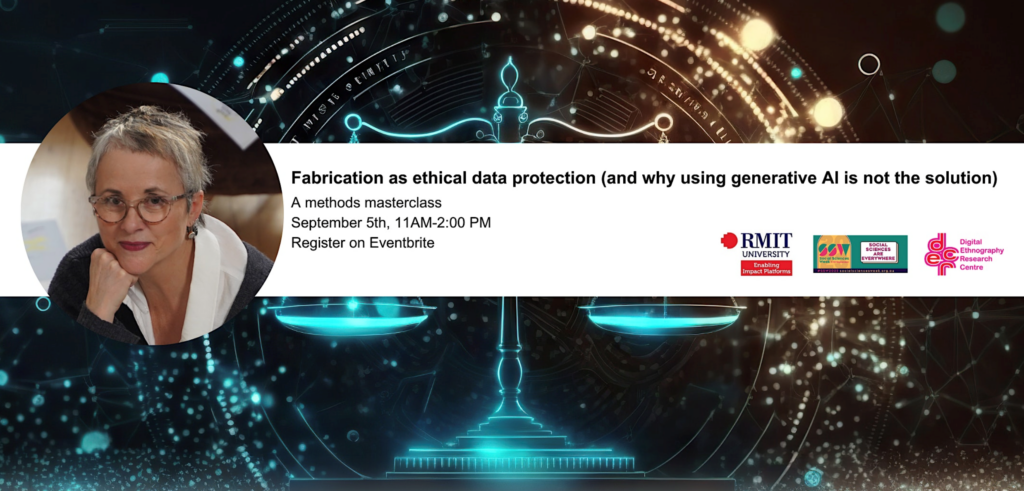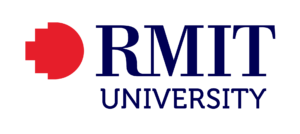Fabrication as Ethical Data Protection: A Methods Masterclass

- This event has passed.

Protecting individuals’ identities is a continual challenge for researchers in the data age, when individuals can be easily identified based on their statements, images, and even their grammatical tendencies in writing or speaking. How can researchers using social science methods protect the privacy or anonymity of participants? One solution is to rebuild raw data into composite forms that present and/or evoke the researchers’ interpretations but do not use original materials gathered from participants. This is done primarily at later stages of the research when presenting findings. Using the strength of qualitative approaches, the researcher can transform verbal and visual materials gathered in field observations, interviews, and focus groups, as well as larger datasets generated through data scraping.
In this masterclass, Professor Annette Markham presents her concept of ‘Ethical Fabrication’ followed by a workshop where participants practice techniques for building composites as narrative vignettes. The workshop will conclude with a brainstorming session on the practice and types of ethical fabrication in the era of generative AI. While it might seem easy to consider fabricating composite accounts in an automated fashion with cloud-based generative AI (ChatGPT, for example), this practice is ethical risky at present, as it essentially shares the raw dataset with the company for their AI model testing.
Event is free, but registration is required. The Masterclass is targeted to researchers seeking advanced skills in research methods.
Course Leader
Annette Markham is an expert in qualitative and ethnographic methods for research in data-rich or digitally-saturated contexts. She is globally recognized for her groundbreaking work to build innovative frameworks for combining methods and ethics for grappling with complex research situations. She is former Chair of the International Association of Internet Researchers (AoIR) ethics committee, primary author of the widely-used AoIR 2012 guidelines for ethical decision making in internet research, and author of various related works, such as Internet Inquiry: Conversations about Method (2009, Sage); Fabrication as Ethical Practice (2012); Ethic as Impact (2018); and Method as ethic, ethic as method (2006). Annette is Professor of Media and Communication at RMIT University.
Event Hosts
This is a RMIT Engaging for Impact event and is supported by the RMIT Enabling Impact Platforms, College of Design and Social Context, College of Business and Law, School of Global, Urban and Social Studies, and RMIT Culture. The masterclass is part of a series of RMIT Methods Masterclasses organized and supported by RMIT’s Design and Creative Practice Enabling Impact Platform, the Social Change Enabling Impact Platform, and the Digital Ethnography Research Centre.

